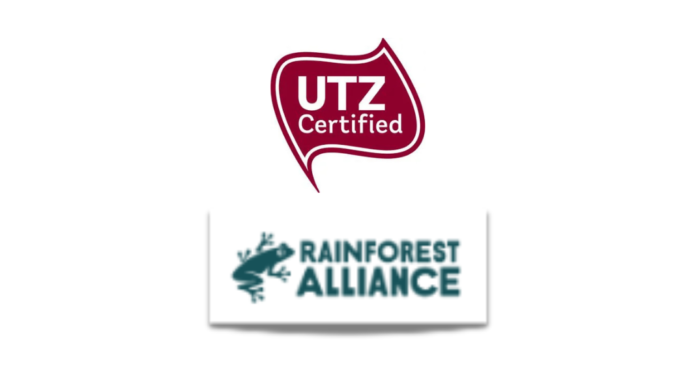The Rainforest Alliance helps the world while promoting eco-friendly agricultural activities using the UTZ Certification program. This initiative promotes ethical and responsible sourcing practices. By addressing agricultural sustainability, the program helps in producing coffee, cocoa, tea, and hazelnuts sustainably.
Adopting New Methods of Agriculture to Create a Brighter Tomorrow
The program’s vision of facilitating farming communities around the world is attainable with the UTZ Certificate. Sustainable agriculture is fueled, and the farmers certified under the program are encouraged to adopt solutions that are carefully self-sufficient and aid the ecosystem. In doing so, they remain productive and help the environment at the same time hence building sustainable communities.
More sustainably hopeful Rainforest Alliance tries to achieve its core mission of agriculture sustainability and tackling climate change by incorporating eco-friendly accommodates for farmers. They aim to ensure global food security, which comes from sustainable offering that helps boost yields while reducing environmental footprint.
Encouraging Responsible Sourcing and Supply Chains
Sustainable practices are one of the main focuses of the UTZ program. Certification proves that there are sustainable supply chains and one does not have to worry about the products not being eco-friendly. Sustainable coffee, cocoa, and tea symbolize responsible consumption. This assists in marketing sustainable economies where ethical brands are linked with green-minded consumers.
The Rainforest Alliance aggressive certification helps strengthens sustainable supply chains to enable top standards in self certification.
These include sustainable business practices, sustainable governance, and sustainable accountability. These practices build trust and reputation for businesses in the global marketplace.
Certification Standards for Long Lasting Impact
UTZ Certified products are sustainable in nature. The certification audit checks for compliance with environmental and social standards, and the audits verify sustainable practices. Progress is gauged against sustainability targets and indicators. Certified farmers are also assessed on how sustainable their practices are and how they can adopt better farming practices.
There are many advantages for sustainable certifications. They prove that responsible sourcing practices were utilized, in addition, they set the standard for sustainable management. Certification programs help assure compliance with ethical sourcing and business practices within the supply chain. The consumers and other businesses using UTZ Certified products are rest assured of sustainable practices.
Encouraging Sustainable Innovations and Technologies
Innovations that are made in UTZ Certification innovation infrastructure supporting the certification of farmers are crucial for the construction of a sustainable future. These innovations serve to guarantee harvesting practices which are sustainable and green. These innovations advance the sustainability of agriculture and also support the development of sustainable communities. Farmers are the jewels of the field as these UTZ farmers help to set a benchmark for farmers around the globe.
This is guaranteed by the great emphasis placed by The Rainforest Alliance on the use of sustainable farming practices resource conserving farming technologies. The result is improved farming for with greater efficiency and less used resources.
Tools like precision farming aid in the improvement of a product’s design and its overall efficiency as well. Such innovations facilitate the achievement of sustenance within the economy.
Partnering for Global Sustainability
The Rainforest Alliance works with businesses, investors, and communities to achieve goals that are focused on sustainability. These collaborations have been strengthened by the enterprises which operate and give investment funds as they put to use entrepreneurial skills that are sustainable. They drive the promotion of innovation and collaboration.
Our clients expect that all products, even the simplest, can be ethically sourced. The Rainforest Alliance brings ethical businesses together with consumers who want to make a sustainable impact. This partnership nurtures business trust credibility, which allows companies to supply sustainable products. Trust is the most strategic asset, and these collaborations in relaying the sustainable framework come with guarantees.
Building a Sustainable Future
The Rainforest Alliance and the other certification body known as UTZ Certification set the tone for the future of the agriculture in a sustainable ways. The organizations help sourcing in a proactive way, which positively affects the order of supply and demand. Its certification programs catalyze change among farmers, dedication to environmental stewardship, and foster sustainable economic development. These efforts promote a world in which sustainable agricultural practices and ethical sourcing are the standard.
The importance of UTZ Certification to professionals working in industries and investors is very significant. This program shows the commitment of businesses as they strive to do green box practices. These benchmarks allow greater competition for the business and aid in achieving global sustainability targets.
Conclusion
Farmers and businesses are equipped by the Rainforest Alliance’s UTZ Certification program, enabling them to employ the best sustainable practices.
Through their engaging sustainable efforts, ethical sourcing of products for the organization helps create a greener future. It has created a great impact on sustainable agriculture and responsible sourcing confidence globally.


